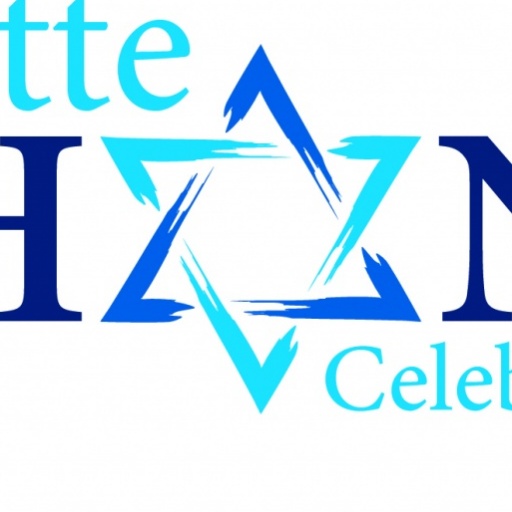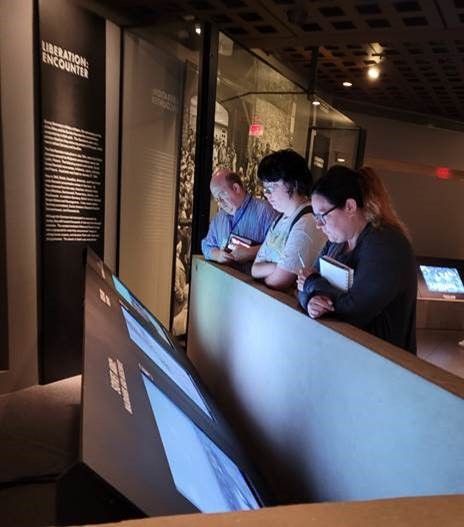The Charlotte Jewish News September 2022
In mid-July, a group of North Carolina educators spent time together in Washington, D.C., inquiring, sharing, learning, and building community. When they arrived, though tired, they were ready to dive into the subject that united them: bringing meaningful Holocaust education to their students.
The big questions that guided this year’s trip focused on memory and memorialization. Participants sought answers to the questions, “Why do we remember the events of the Holocaust?” and “How does the United States Holocaust Memorial Museum (USHMM) tell the story?” They investigated the art and architecture of the museum, evaluated the exhibits, and searched for stories and artifacts that had an effect on them as educators and individuals. Sometimes they found answers. Many more times, they discovered new questions.
Visiting the USHMM takes a toll on the body and soul. To bring balance to the journey, participants enjoyed an evening tour of the Washington, D.C., monuments. Our tour guide had a sense of humor, a love of history, and an endless wealth of knowledge. The group’s favorite stops were the Martin Luther King, Jr. and Lincoln Memorials.
Here are reflections from two educators:
“Because of this experience, I am now better equipped to help my students understand that such inhumane injustice has happened and can happen again, but that it hasn’t and won’t announce itself as such. I want them to know that when it does happen, they will have a similar obligation to recognize and resist it. That decision will likely carry risk, but to paraphrase Hannah Senesh, whose heroism I learned about at the museum, we must all be willing to gamble on what matters most.” Albertia Burgess, Onslow Virtual Secondary School
“When teaching the Holocaust, ‘fighting back’ has been the perspective I’ve used to teach this historical tragedy for more than a decade. This past week, during our trip to Washington, D.C., my perspective shifted … Though I have always relied on my own ability to retaliate in some capacity, the fourth floor of the USHMM [focused on the Nazi use of terror] refused me the opportunity. I could not fight; I could not stand up for me. All at once, I was nobody; I was voiceless . . . This created a newfound awareness, level of compassion, and interest in activism for me. I will forever be grateful for this experience that I am certain has made me more empathetic and sincere in my efforts to understand how the histories of others, ultimately, impact me and the students I teach.” Drew Daniels, Hickory High School
Generous funding from the North Carolina Holocaust Foundation, with support from the Jewish Federation of Greater Charlotte, made this trip possible. It was the Foundation’s first trip outside of North Carolina since COVID-19 came to town. Donna Tarney (Stan Greenspon Center), Andrew Burton (English teacher, friend of the North Carolina Council on the Holocaust), and Cherie Page (ELA teacher, Piedmont Middle School) facilitated the trip.
For more information regarding programs and services of the North Carolina Council on the Holocaust, contact Mike Abramson at mabramson919@gmail.com. To donate in support of the Council, contact Mitch Rifkin at rif121@carolina.rr.com.


